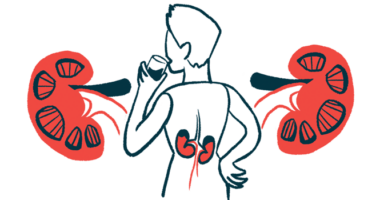From fog to light: Managing depression in life with vasculitis
Asking for help is crucial during depressive episodes, a columnist says

Depression is a challenging illness to manage. When I have a depressive spell, it feels like I’m stuck in a cold, gray fog with no way out. No matter what I do, I can’t see past the gloom. For the past two weeks, I’ve been lost in it.
Dealing with the unknowns of ANCA vasculitis can lead to depression, as I’ve discovered in my 17 years with eosinophilic granulomatosis with polyangiitis (EGPA). A daily antidepressant helps me manage this side effect of my chronic illness.
I have suitable coping mechanisms; usually, a good bath, a movie that makes me cry, or having someone make me dinner helps. I also have a great group of friends and a trusted psychologist to talk with when depression occurs.
However, over the past two weeks, none of my typical tricks lifted the fog.
Lost in the gloom
I live in California, and my home was recently engulfed by wildfire smoke originating in other Western states. Typically, my EGPA asthma is well controlled, but after days of smoke and bad air quality, my asthma was out of control. During that time, my oxygen saturation level dipped, I had difficulty taking deep breaths, and I coughed all day and night. Unfortunately, this caused me to develop a lung infection.
After numerous doctor appointments and a CT scan of my lungs, I started on a 14-day antibiotic regimen. But even though the infection cleared up, I was mentally feeling worse by the day.
The antibiotic made me nauseous, and I had difficulty mentally getting out of bed. I avoided all social contact and only left my bedroom for meals. My family understands I have bouts of depression, and they put no demands on me and just let me be. But I still wasn’t feeling optimistic about life.
Nothing I did made me happy, and I started overeating in an attempt to feel better. But this just made me feel worse, as I was now gaining weight. I felt like a failure. My ordinarily positive attitude was missing.
Reaching out for help
I became worried that my antidepressants were no longer effective, but I knew better than to try to cope with this on my own. When I called my psychologist, we discussed everything that was going on in my life. She asked about any recent medical changes, and I mentioned the new antibiotic regimen. She reminded me that, although medically necessary, certain antibiotics can cause depression or hopelessness, and that I’d experienced that side effect before.
Suddenly, everything I was feeling made sense. I couldn’t believe I had forgotten about my past experiences with antibiotics. Light started shining through the fog. I was hopeful again.
I did finish the last two days of my regimen, because I didn’t want to develop antibiotic resistance. But knowing why I was experiencing a depressive fog helped me get through it.
I wasn’t instantly better; depression is not a light switch, and it took some time for me to start feeling more positive and hopeful. My doctors have noted in my medical chart that some antibiotics can cause this side effect for me, but the selection of medications that work for me is limited. My medical team must weigh the risks and rewards of each prescription.
Asking for help is essential in managing depression. I’m grateful that my family is there for me and that they check in to ensure I’m OK.
If you’re experiencing signs of depression, I encourage you to tell those around you and seek professional help. As ANCA vasculitis patients, it’s important to remember that we don’t have to navigate the fog alone.
Note: ANCA Vasculitis News is strictly a news and information website about the disease. It does not provide medical advice, diagnosis, or treatment. This content is not intended to be a substitute for professional medical advice, diagnosis, or treatment. Always seek the advice of your physician or other qualified health provider with any questions you may have regarding a medical condition. Never disregard professional medical advice or delay in seeking it because of something you have read on this website. The opinions expressed in this column are not those of ANCA Vasculitis News or its parent company, BioNews, and are intended to spark discussion about issues pertaining to ANCA vasculitis.







Comments